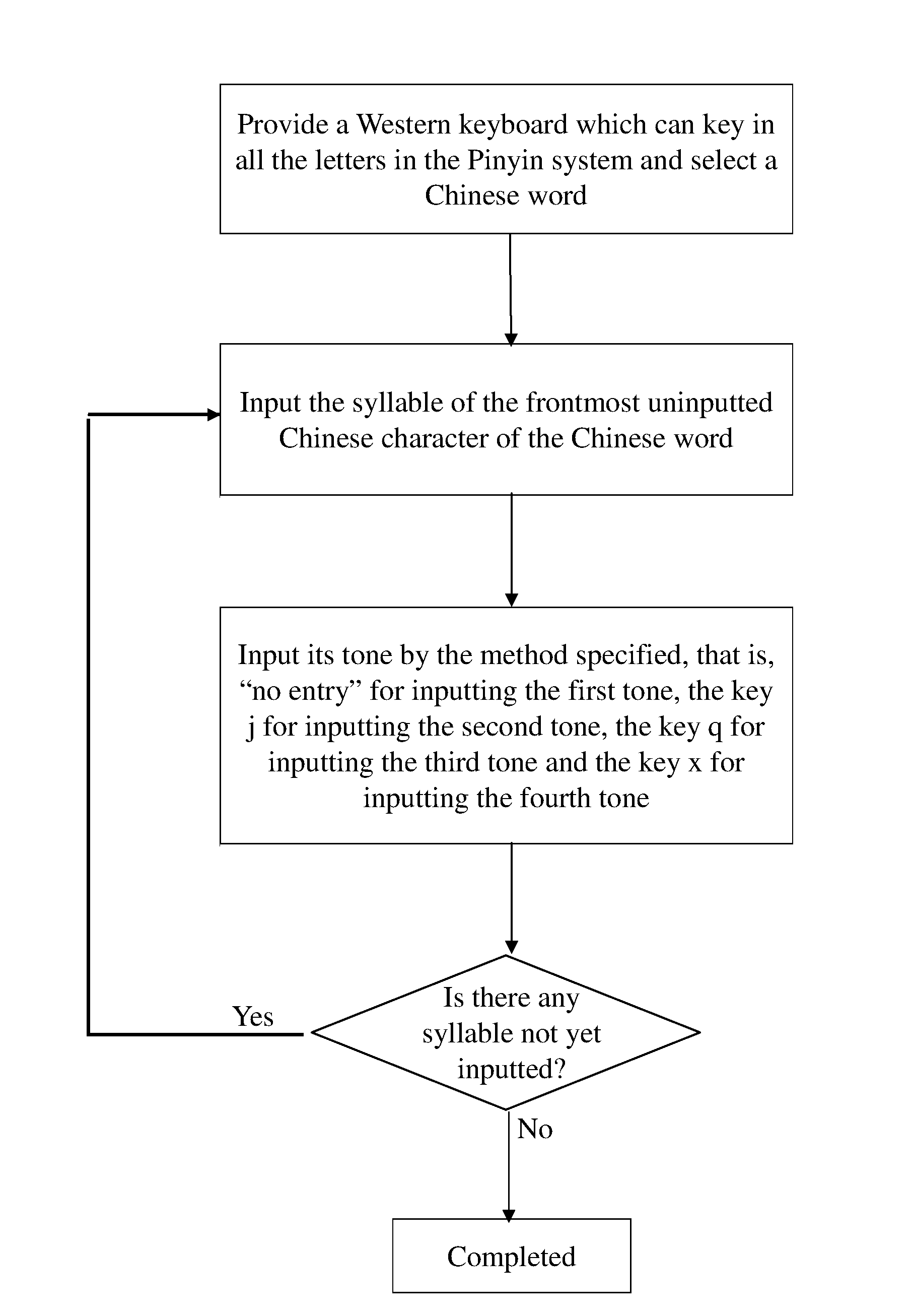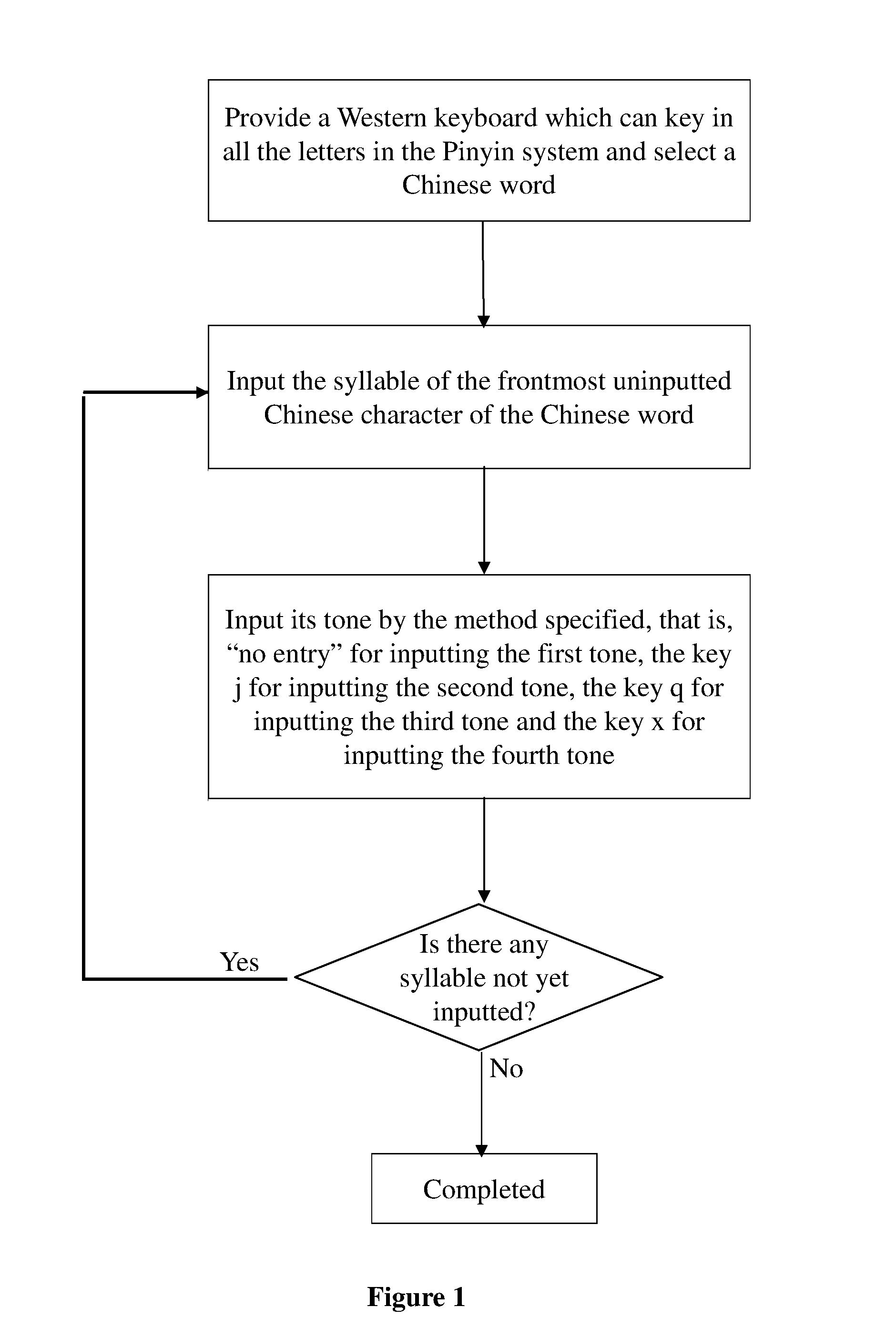Chinese Input Method Using Pinyin Plus Tones
a technology of input method and tones, applied in the field of input method, can solve the problems of poor selection situation, limited help, and even worse selection situation, and achieve the effects of improving input speed, simple learning, and reducing repeated codes
- Summary
- Abstract
- Description
- Claims
- Application Information
AI Technical Summary
Benefits of technology
Problems solved by technology
Method used
Image
Examples
embodiment 1
[0027]Embodiment 1 of this invention is characterized in that “the tone of a Chinese character is inputted through keying in the letter j, q or x or no entry”, so that “the user can input a Chinese compound word containing several syllables and tones by just using the letter keys, and the letters representing the syllables and tones of the Chinese compound word are all joined together without causing any confusion”.
[0028]Embodiment 1 does not specify which specific letters represent which specific tones.
embodiment 2
[0029]Embodiment 2 clearly specifies that “no entry” is used to express the first tone (level tone), the key j is used to input the second tone (rising tone), the key q is used to input the third tone (falling-rising tone) and the key x is used to input the fourth tone (falling tone). Obviously, Embodiment 2 is just an embodiment covered by Embodiment 1. For the sake of convenience, Embodiment 2 is used to demonstrate only the procedures of inputting a Chinese compound word containing several syllables and tones by using just the letter keys, with the four tones of Mandarin represented by the letters j, q, x or “no entry”; and as for the reason why confusion will not occur even when the several syllables and tones are joined together, explanation will be made later. As shown in FIG. 1, the input process is as follows:
[0030]Provide a Western keyboard which can key in all the letters in the Pinyin system;
[0031]Use the Western keyboard to input the syllable of the first Chinese charact...
PUM
 Login to View More
Login to View More Abstract
Description
Claims
Application Information
 Login to View More
Login to View More - R&D
- Intellectual Property
- Life Sciences
- Materials
- Tech Scout
- Unparalleled Data Quality
- Higher Quality Content
- 60% Fewer Hallucinations
Browse by: Latest US Patents, China's latest patents, Technical Efficacy Thesaurus, Application Domain, Technology Topic, Popular Technical Reports.
© 2025 PatSnap. All rights reserved.Legal|Privacy policy|Modern Slavery Act Transparency Statement|Sitemap|About US| Contact US: help@patsnap.com



